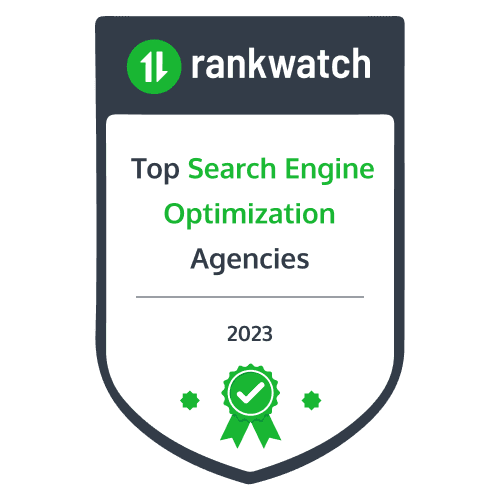In today’s competitive coffee industry, coffee marketing plays a crucial role in the success of a business. With numerous coffee shops and brands vying for attention, standing out from the crowd and attracting customers is essential. Effective coffee marketing helps reach a wider audience, creates a strong brand image, and fosters business growth.
Coffee marketing encompasses various strategies and techniques to promote your brand and products. It involves understanding the market, identifying your target audience, developing a marketing strategy, building a strong brand, utilizing social media platforms, creating engaging content, leveraging influencer partnerships, implementing promotions and discounts, and measuring the success of your efforts. This guide will explore these aspects in detail and provide insights into how you can effectively market your coffee business.
Understanding the Coffee Market
Before diving into coffee marketing, it is essential to have a comprehensive understanding of the coffee market. The coffee industry is vast and diverse, with different specialties, organic, single-origin, and more segments. Each segment caters to a specific group of coffee enthusiasts with unique preferences and expectations.
To understand the coffee market, conduct thorough market research. Analyze industry trends, consumer behavior, and competitor analysis. Identify gaps and opportunities that can be leveraged to differentiate your brand and offerings. Understanding the market allows you to tailor your coffee marketing efforts to resonate effectively with your target audience.
Identifying Your Target Audience


Identifying your target audience is a crucial step in coffee marketing. Your target audience is individuals most likely to be interested in your coffee products or services. By understanding their demographics, preferences, and needs, you can tailor your marketing messages to resonate with them effectively.
Start by creating buyer personas for your target audience. These personas are fictional representations of your ideal customers and help you understand their characteristics, motivations, and behaviors. Consider age, gender, location, income, lifestyle, and coffee preferences. This information will guide you in crafting targeted marketing campaigns that speak directly to your audience’s desires and aspirations.
Developing a Coffee Marketing Strategy
Once you have identified your target audience, it’s time to develop a comprehensive coffee marketing strategy. A marketing strategy outlines your goals, tactics, and channels to promote your coffee business. It serves as a roadmap for your marketing efforts and ensures that your activities are aligned with your business objectives.
Start by defining your marketing goals. Do you want to increase brand awareness, attract customers, or boost sales? Set specific, measurable, attainable, relevant, and time-bound (SMART) goals aligning with your business objectives. Once you have defined your goals, determine your tactics and channels to reach your target audience. This may include social media marketing, content marketing, email marketing, influencer partnerships, offline advertising, etc.
Building a Strong Coffee Brand


Building a strong brand is essential for long-term success in the coffee industry. A brand goes beyond just a logo and a name; it represents your coffee business’s values, personality, and unique selling proposition. A strong brand attracts customers and creates loyalty and differentiation in a crowded market.
Start by defining your brand identity. Identify your brand’s mission, vision, values, and positioning. What sets your coffee business apart from others? Communicate these aspects consistently across all touchpoints, including your website, packaging, social media, and customer interactions. Invest in high-quality branding materials and design to create a visually appealing and cohesive brand image.
Utilizing Social Media for Coffee Marketing
In today’s digital age, social media has become a powerful tool for coffee marketing. Platforms like Instagram, Facebook, and Twitter provide an opportunity to connect with your target audience, showcase your coffee products, and engage in meaningful conversations. Using social media effectively creates brand awareness, drives traffic to your website, and ultimately increases sales.
Start by choosing the right social media platforms for your coffee business. Consider your target audience’s demographics and preferences. For example, if your target audience consists of younger coffee enthusiasts, platforms like Instagram and TikTok may be more suitable. Develop a content strategy that resonates with your brand and your audience. Share visually appealing photos and videos of your coffee products, behind-the-scenes glimpses of your coffee-making process, and engaging coffee-related content.
Creating Engaging Coffee Content


Content marketing is a powerful tool in coffee marketing. Creating valuable and engaging content can build credibility, establish thought leadership, and attract a loyal audience. Content can take various forms, including blog articles, videos, podcasts, infographics, etc.
Start by understanding your audience’s pain points and interests. What kind of coffee-related information do they search for? What questions do they have? Use these insights to create content that provides solutions, educates, and entertains. Share coffee brewing tips, recipes, coffee origin stories, and interviews with industry experts. Collaborate with coffee influencers or experts to create guest content that adds value to your audience. Remember to optimize your content for search engines using relevant keywords and meta-tags.
Leveraging Influencer Partnerships in Coffee Marketing
Influencer partnerships can be a valuable asset in coffee marketing. Collaborating with influencers with a strong following and influence in the coffee community can help you reach a wider audience and build credibility. When choosing influencers, consider their relevance to your brand, engagement rates, authenticity, and alignment with your brand values.
Start by identifying potential influencers in the coffee industry. Look for popular coffee bloggers, YouTubers, or Instagrammers with a genuine passion for coffee. Reach out to them with a personalized pitch, highlighting how your brand can benefit their audience. Consider offering free samples or exclusive discounts for their followers. Collaborate on content creation, such as sponsored posts, product reviews, or giveaways. Monitor the performance of these partnerships and analyze the impact on your brand awareness, website traffic, and sales.
Implementing Effective Coffee Promotions and Discounts


Promotions and discounts can be an effective strategy to attract new customers and boost sales in the coffee industry. By offering irresistible deals, you can create a sense of urgency and incentivize people to try your coffee products. However, it is essential to implement these promotions strategically to avoid devaluing your brand or attracting price-focused customers.
Start by understanding your profit margins and setting clear objectives for your promotions. Determine whether your goal is to increase brand awareness, acquire new customers, or drive repeat purchases. Develop enticing offers that align with your objectives and target audience’s preferences. For example, you can offer a “buy one, get one free” deal, a limited-time discount, or a loyalty program. Promote these offers through various channels, including social media, email marketing, and your website.
Measuring the Success of Your Coffee Marketing Efforts
Measuring the success of your coffee marketing efforts is crucial to understand the effectiveness of your strategies and make data-driven decisions. By tracking key performance indicators (KPIs), you can evaluate the impact of your marketing activities and optimize your campaigns for better results.
Start by identifying relevant KPIs based on your marketing goals. These may include website traffic, social media engagement, conversion rates, customer acquisition cost, lifetime value, and return on investment (ROI). Utilize analytics tools such as Google Analytics, social media insights, and customer relationship management (CRM) software to track these metrics. Regularly review your performance, identify areas for improvement, and make necessary adjustments to your coffee marketing strategies.
Case Studies: Successful Coffee Marketing Campaigns
Examining successful coffee marketing campaigns can provide valuable insights and inspiration for your strategies. Let’s look at two case studies showcasing effective coffee marketing.
Case Study 1: Starbucks’ “Starbucks for Life” Campaign


Starbucks launched the “Starbucks for Life” campaign, offering customers a chance to win free Starbucks drinks for life. To participate, customers had to purchase using the Starbucks mobile app or a registered Starbucks card. The campaign generated significant buzz and excitement, driving customer engagement and sales. By leveraging the power of gamification and exclusivity, Starbucks created a sense of urgency and incentivized customers to become loyal brand advocates.
Case Study 2: Nespresso’s “What Else?” Campaign with George Clooney
Nespresso’s “What Else?” campaign featured Hollywood actor George Clooney as the brand ambassador. The campaign showcased Clooney enjoying Nespresso coffee in luxurious settings, creating an aspirational image of the brand. By associating the brand with a well-known celebrity and highlighting the quality and sophistication of their coffee, Nespresso successfully positioned itself as a premium coffee brand. The campaign resulted in increased brand awareness, customer acquisition, and sales.
Coffee Marketing Trends to Watch
Keeping an eye on emerging marketing trends is essential to stay ahead in the coffee industry. Here are a few coffee marketing trends to watch:
- Sustainability and Ethical Sourcing: Consumers are increasingly conscious of their coffee choices’ environmental and social impact. Highlight your sustainable practices, fair trade partnerships, and ethical sourcing to attract aware consumers.
- Personalization: Personalized marketing experiences are becoming more prevalent. Use customer data to tailor your marketing messages, recommend coffee products based on their preferences, and create personalized offers.
- Video Marketing: Video content is gaining popularity across social media platforms. Invest in creating high-quality videos that showcase your coffee products, brewing techniques, and customer testimonials.
- User-Generated Content: Encourage customers to share their coffee experiences and photos on social media. User-generated content adds authenticity to your brand and creates a sense of community.
- Voice Search Optimization: Voice assistants like Alexa and Siri are changing how people search for information. Optimize your website and content for voice search queries to ensure your brand appears in relevant search results.
Conclusion
Coffee marketing is a multifaceted process that requires a deep understanding of the industry, target audience, and effective strategies. By implementing a comprehensive coffee marketing strategy, building a strong brand, utilizing social media, creating engaging content, leveraging influencer partnerships, implementing promotions, and measuring the success of your efforts, you can position your coffee business for growth and success in a competitive market. Stay updated with the latest coffee marketing trends, learn from successful campaigns, and adapt your strategies to meet coffee enthusiasts’ evolving needs and preferences. Cheers to a successful coffee marketing journey!
For an effective coffee marketing strategy, contact Markitome today!




We hope you’re enjoying reading our blogs… Don’t forget to secure your browsing experience with Nord VPN. Click the banner below to learn more
More To Explore
Redefining Digital Marketing in 2024: 10 Game-Changing Trends
In the ever-evolving world of digital marketing, staying ahead of the curve is essential. As we approach 2024, it’s crucial to be aware of the
SEO Mania-7 Proven Strategies for Explosive SEO Growth in 2024
Understanding the Importance of SEO in 2024 In the ever-evolving world of SEO, staying ahead of the curve is crucial to your online success. As